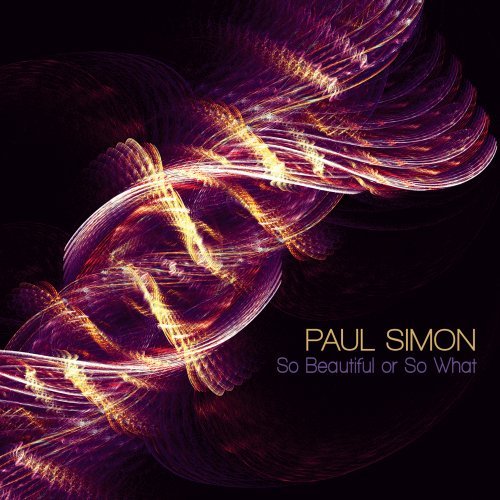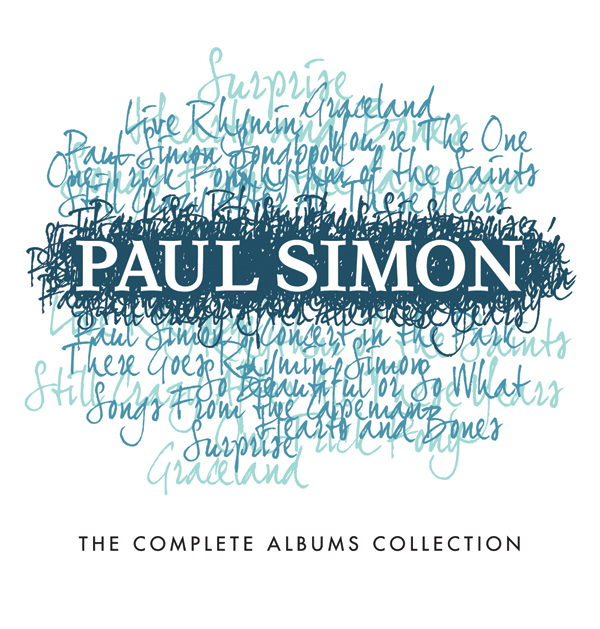Videos by American Songwriter
Paul Simon
So Beautiful Or So What
(Hear Music/Concord)
[Rating: 4 stars]
According to Paul Simon, his new album So Beautiful Or So What is the best work he has done in decades. That’s a bold proclamation. Even more startling: it’s not hyperbole. So Beautiful Or So What might lack the crossover reach of his frothy ’60s duets with Art Garfunkel or his credibility-restoring 1987 album Graceland, but Simon has birthed another career renaissance by doing precisely what he does best: harmonic folk-pop tunes. At 69, he’s mellowed into old age nicely.
With So Beautiful Or So What, Simon has done something more gratifying than boost his image: he’s advanced creatively. On his first album of original material in five years, Simon serves up a kind of musical comfort food that keeps a resolute finger on America’s pulse. It’s not Nebraska, but there are many astute observations about American life here. First single “Getting Ready For Christmas Day” is a rib-sticking bit of folk-rock with a bleating, clattering melody and lyrics – about a kid spending the holidays in Iraq – that speak to the dampened spirit of a country at war in a manner not unlike PJ Harvey’s acclaimed recent disc, Let England Shake.
Later, on “So Beautiful Or So What,” he remembers the pain and strife of the civil rights movement and the piercing blow that Martin Luther King’s assassination dealt to the millions struggling for equality. It’s as if Simon is still reeling from that symbolic loss. “Dr. King has just been shot/And the sirens’ long melody/Singing savior pass me not,” he mourns before directing his blame inward: “Ain’t it strange the way we’re ignorant?”
Simon, always a terrific mood-setter, has love on the brain this time around, but rarely are his judgments sentimental, starry-eyed, or quixotic. He has been married (to singer Edie Brickell) for close to two decades and seems to realize that relationships are a complicated beast. On the somber “Love And Hard Times,” he avows that anguish is what brings people closest together – a hackneyed talking point, maybe, but Simon sells it with grave sincerity. “Questions For The Angels” has a more spiritual bent, but even then Simon is planted firmly in reality: many of these songs address either personal or broader societal woes. In a world plighted by misery, Simon seems to be telling us that establishing and maintaining trusted relationships is vitally necessary.
“The Afterlife” unfolds at its own gorgeous, leisurely pace, with Simon’s vocals buried sultrily in the mix. He ponders the oneness of God (“Face to face, in the vastness of space/Your words disappear”) and the teachings of Buddha and Moses, wondering aloud if we compromise faith in pursuit of nebulously defined success. Evocative as the song is, though, So Beautiful Or So What’s centerpiece is the title track, a country-tinged number with lyrics about cooking gumbo and reading bedtime stories to his children: “Will it have a happy ending? Maybe yeah, maybe not/I tell them life is what you make it,” he sings. It is during these moments that Simon feels most human, although the singer’s meditations on the complicated nature of romance (“Love And Hard Times”) ring poignantly true as well.
Much of the record’s success can be attributed to Phil Ramone, the groundbreaking South African producer whose credits include Billy Joel’s 1977 blockbuster The Stranger and 1978 follow-up 52nd Street. Ramone’s swampy, mid-tempo arrangements on So Beautiful Or So What provide the ideal fodder for Simon – the record is warm, intimate and thoroughly lived-in, revealing a natural chemistry between two very capable musicians. Simon’s weathered voice sounds all the more powerful in the context of these deliciously understated tracks: the guitars curl, murmur, and then fade out hazily, the ideal soundtrack to a humid spring morning. The colorful afro-pop of Graceland is nowhere to be heard, but So Beautiful Or So What nonetheless feels bracingly authentic.
There was never any guarantee that Simon would return with this much vigor, but this album is a tactfully arranged and written triumph that succeeds in spite of his diminished ambition. His voice has grown craggier with age and his social commentary is more pedestrian, but what remains pristine is Simon’s penmanship, sensitivity, and instinctual ear for melody – he’s a songwriter for the ages.












Leave a Reply
Only members can comment. Become a member. Already a member? Log in.